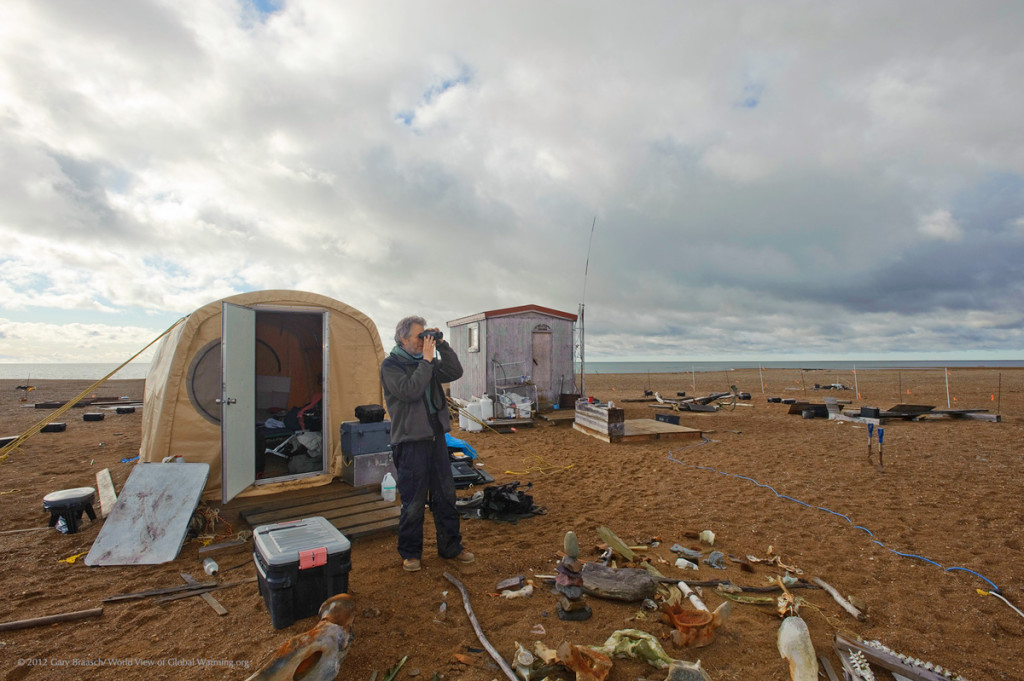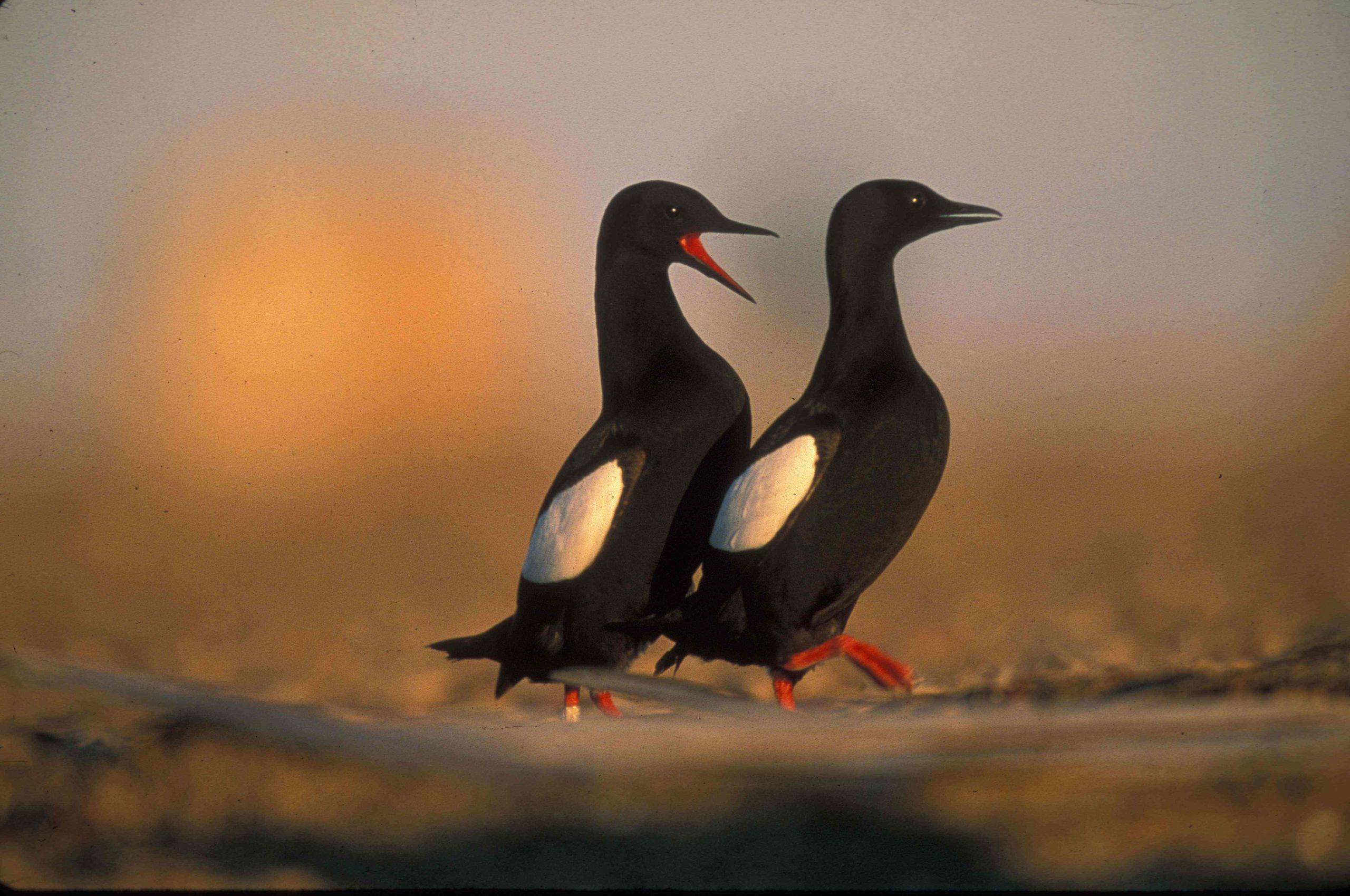The Black Guillemots on Cooper Island have seen their nesting success reduced over the past four decades as sea ice decline has reduced the availability of their preferred prey. Sea ice extent in the Arctic on June 15, 2015 was 9.1 (only one decimal point) million km sq., 10 percent less than the average...
Author: George Divoky (George Divoky)
Cooper Island Guillemots and Shell’s Chukchi Sea Drilling Plans
The two weeks before I head north to Cooper Island are always an interesting mix of anticipation of the upcoming three-month field season combined with regret at having to leave my family and friends in Seattle. In recent years, as the Arctic continues to warm, there is a good amount of uncertainty as to what...
Cooper Island on PBS in 2003 – Alan Alda, Scientific Americian Frontiers
In 2003 when the Black Guillemots on Cooper Island first started eating large numbers of sculpin in place of the preferred prey of Arctic cod, the PBS Scientific American Frontiers series paid me a visit in August. Their work in Alaska that summer resulted in an hour-long show on climate change issues in the state...
Cooper Island on Public Radio’s Science Friday
Had the opportunity to be on Science Friday on public radio last week discussing how relatively minor shifts in temperatures in the Arctic can cause major disruptions and shifts in the region’s habitats. You can listen to the discussion at this link. Habitats Shift As Arctic Temps Creep Above Freezing Cheryl Rosa of the United States...
Nature Night: A Seabird Responds to a Melting Arctic
On March 10, 2015 George Divoky will be giving a talk to the Audubon Society of Portland from 7:00-8:30 at Audubon’s main campus at 5151 NW Cornell Road in Portland, Oregon. More information at this link: March 10 Portland Audubon Talk
Crosscut Article on Our Work
Last April I went to Barrow for a few days to prepare for the upcoming field season and, more importantly, to visit with my colleagues and friends in Barrow without the rushed atmosphere of my visits when I am there heading out to the field or back to Seattle. Without the support and friendship of...
Cooper Island Research part of Polar Sea documentary
Cooper Island sits at the western end of the fabled Northwest Passage that has engaged explorers and adventurers for centuries. Cooper Island would not even be called “Cooper Island” if it were not for John Franklin’s attempt (and failure) to navigate from the Atlantic to the Pacific through the Canadian Arctic Archipelago. As the British H.M.S....
Polar bears almost get a guillemot this past summer
A polar bear mother and nearly grown young almost get a brooding guillemot. The parent bird survived and was back on the nest the next day.
An interview in New Worker Magazine just before heading for the field
Beth Jusino who, like me, works out of the Office Nomads coworking space in Seattle, wrote about the Cooper Island research for the inaugural edition of New Worker Magazine in an interview that answers the pressing question “Do you plan to continue your 39-year-study this summer or might you do something else?”
The Black Guillemot
The Black Guillemot has a number of life history characteristics that make it an ideal monitor of changes in the marine environment in general and the Arctic in particular. Guillemots, of which there are three species, belong to the seabird family known as auks, or alcids. The most abundant seabird family in the Northern Hemisphere,...

